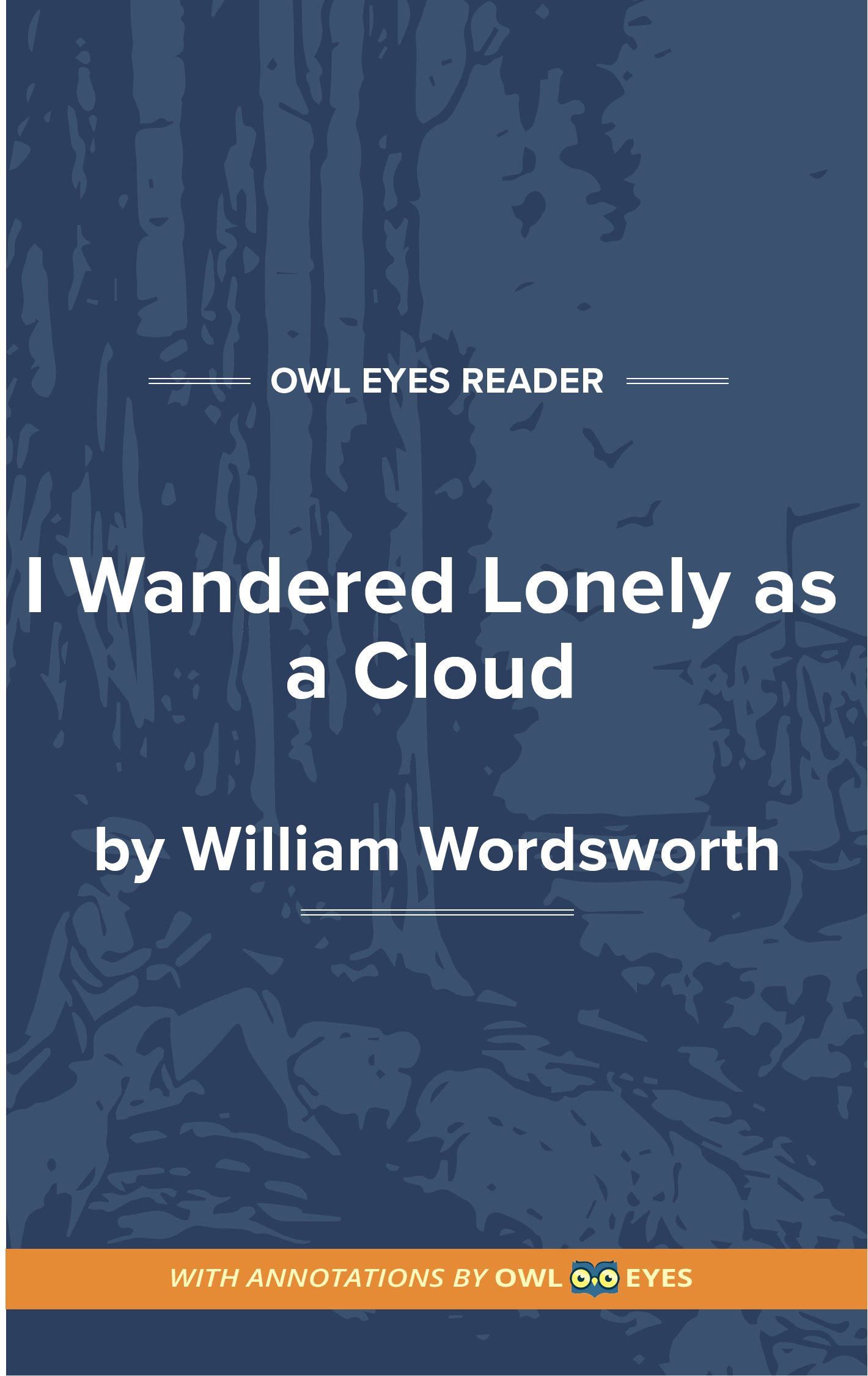Analysis Pages
William Wordsworth Biography
Article abstract: As one of the first and probably the greatest of the English Romantic poets, Wordsworth redirected the literary trends of the time. His most important poems present a vision of the expanded human mind in creative interplay with the external world.
Early Life
William Wordsworth was born on April 7, 1770, in the village of Cockermouth, on the borders of the Lake District in northwest England. He was the second of five children born to John and Ann Wordsworth. His mother died when he was eight, and when he was nine he was sent to Hawkshead Grammar School, thirty-five miles to the south, on the shores of Esthwaite Lake. Wordsworth loved the Lakeland countryside, where he was free to roam for long periods, as he was later to record in The Prelude: Or, The Growth of a Poet’s Mind (1850). He was an adventurous, imaginative, strong-minded, and rebellious boy, who was also given to periods of solitude. His was a happy childhood, though his father also died when Wordsworth was young.
In 1787, Wordsworth entered St. John’s College, Cambridge, but the tall, lean, and dour Northerner, his long face usually serious in expression, his clothes plain and unsophisticated, and his manner awkward, neither excelled as a scholar nor fitted smoothly into fashionable social circles. He later wrote in The Prelude that he believed that he was “not for that hour,/ Nor for that place,” but at the time he had no clear idea of his vocation.
During his summer vacation in 1790, Wordsworth went on a walking tour with his friend Robert Jones through France and the Alps. The following year, after receiving his degree from Cambridge, he climbed Mount Snowdon, the highest peak in Great Britain. It was an important event because he would later incorporate the story of the climb, giving it great symbolic importance, in the final book of The Prelude.
In November, 1791, Wordsworth returned to France, where the French Revolution was at its height. Stimulated by his friendship with the Republican soldier Michel Beaupuy, Wordsworth enthusiastically embraced the revolutionary cause, later writing of “France standing on the top of golden hours,/ And human nature seeming born again.” He also had a love affair with a Frenchwoman, Annette Vallon, from Orleans, who later gave birth to his child, Caroline.
Wordsworth returned to England in December, 1792, and one month later his first published poetry, An Evening Walk and Descriptive Sketches, appeared. For the next two years, he lived mainly in London and was involved in radical politics. Wordsworth was appalled that England had gone to war against revolutionary France, but over the next few years, as he watched the Revolution turn into tyranny and ward of conquest, he was thrown into a state of moral confusion.
In 1795, Wordsworth’s financial position eased when a young friend, Raisley Calvert, died and left him a legacy of nine hundred pounds. He and his devoted sister, Dorothy, rented a cottage in Racedown, in the southwest county of Dorset, where Wordsworth recovered his peace of mind. He also met two young poets, Robert Southey and Samuel Taylor Coleridge. The friendship with Coleridge, which became fully established in 1797, coincided with the beginning of a golden decade in which Wordsworth was to write most of his greatest poems.
Life’s Work
Coleridge, a great poet in his own right, worshipped Wordsworth, and Wordsworth, in his turn, was stimulated by the range of Coleridge’s learning and the depth of his critical insight. It was Coleridge who helped to shape Wordsworth’s conception of his own poetic vocation. For several years, the two were almost daily in each other’s company, and in 1798 they published anonymously a joint collection (although Wordsworth was the chief contributor), entitled Lyrical Ballads . It did not win favorable reviews and did not sell many copies, but it later came to be recognized as one of the landmarks in the history of English literature. Wordsworth had developed a new...
(The entire page is 2,166 words.)
Owl Eyes subscribers get unlimited access to our expert annotations, analyses, and study guides on your favorite texts. Master the classics for less than $5/month!

